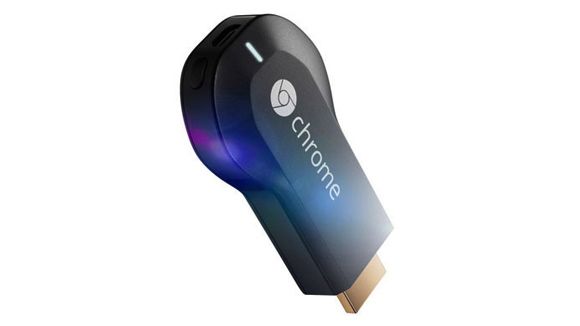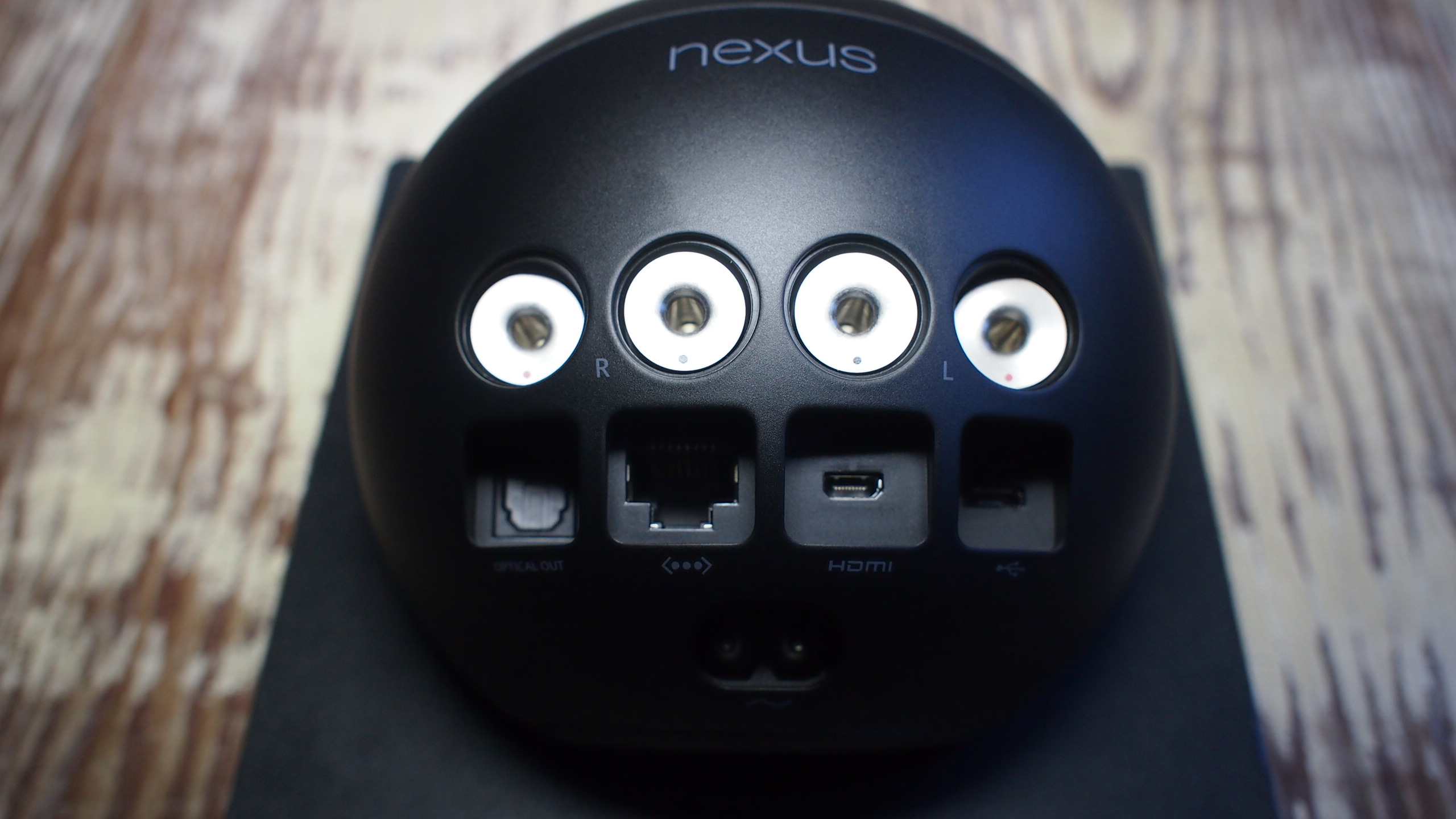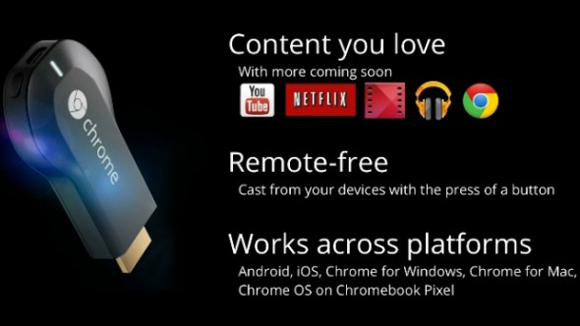
Yesterday Google headlined its breakfast event with a delicious new Nexus 7 tablet packing upgraded hardware that had us salivating, throwing in a new version of Jelly Bean to boot. But the real darling of the day was yet another push by the Mountain View company into our living rooms, this time in the form of a 2-inch dongle.
Google grabbed our collective attention with this HDMI plug-in called Chromecast, a $35 (about £22, AU$38) stick that pulls content that's playing on your smartphone, tablet or laptop from the cloud and streams it to your TV.
While Chromecast is by all measures a hit, with orders flying fast in the U.S., there's something very familiar about Google's play for the boxes in our living rooms. This is, after all, the search engine's third foray into the streaming-to-TV business.
How can we forget the AppleTV known as the Google TV platform and the nowhere-to-be-found Nexus Q?
With Google's tenuous television track record and the currently limited capabilities of Chromecast, it's hard to have faith that Google may once and for all successfully take control of our living rooms with Chromecast.
Or perhaps, maybe not?
Mastering content
While it may seem like a Google TV replacement, a Google TV employee has come out and said that Chromecast won't be the death of Google TV, and Cast support is due at a later date.
Get daily insight, inspiration and deals in your inbox
Sign up for breaking news, reviews, opinion, top tech deals, and more.
This is good for Google TV owners, but it's interesting to think that this little dongle could potentially breathe new life into a platform that's been struggling to take hold for almost three years.
Google TV has struggled from the outset, and even Logitech CEO Guerrino De Luca admitted in 2011 that the Google TV Revue box was a "beta product." Harsh words coming from an early supporter and hardware partner.
One of the biggest disappointments with the original Google TV was the fact that there was simply no content. All of the major networks and even Hulu blocked Google TV from accessing channels. Top that off with the interface problems we experienced both on the screen and with the remote control, and the first Google TV was a hot mess.

Then there was the Nexus Q, a spherical and quizzical attempt to once again marry a Google device and services with media consumption. The Nexus Q was a decidedly less integral part of the living room and Google managed to patch its interface problems by turning Android devices into remote controls. Once again, however, there was a lack of content that left the Nexus Q hanging with only access to YouTube, Google Play videos and Google Music.
The Nexus Q, for all intents and purposes, is a dead product, though there's rumor it may be resurrected in a v. 2 form.
So, Google's TV track record has been crappy, and content seems to be a major culprit.
Chromecast, for now, only has support from four sources – YouTube, Netflix, Google Movies & TV and Google Play Music. Pandora and other app support is due, but no one knows when.
So how will it succeed where others have failed?
For one, we can't imagine it will be without more content soon. Apps like HBO Go, WatchESPN, Hulu Plus, MLB.tv and other content providers are sure to be intrigued by the volume of viewers this $35 device can grab.
There's also the fact that it's open to multiple platforms – even iOS users can tell Google's Chromecast to stream video to their TV. Instead of being limited to only owners of G TVs and Nexus Qs, Google has opened up Chromecast's user base to a healthy amount of eyeballs.

Everywhere mobile
Chromecast also taps into the way we're watching content at an ever-increasing clip, giving this product a shot at succeeding where the others have failed.
Kevin Lee was a former computing reporter at TechRadar. Kevin is now the SEO Updates Editor at IGN based in New York. He handles all of the best of tech buying guides while also dipping his hand in the entertainment and games evergreen content. Kevin has over eight years of experience in the tech and games publications with previous bylines at Polygon, PC World, and more. Outside of work, Kevin is major movie buff of cult and bad films. He also regularly plays flight & space sim and racing games. IRL he's a fan of archery, axe throwing, and board games.
